Media Releases
Below are official University of Bern media releases involving One Health members, past and present.
2022/11/01
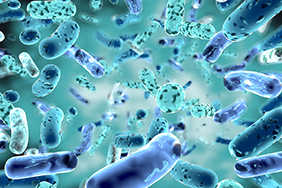
Better understanding of the development of intestinal diseases
Bacteria in the small intestine adapt dynamically to our nutritional state, with individual species disappearing and reappearing. Prof. Andrew Macpherson and researchers at the University of Bern and University Hospital Bern have now been able to comprehensively study the bacteria of the small intestine and their unique adaptability for the first time. The findings contribute to a better understanding of intestinal diseases such as Crohn's disease or celiac disease and to the development of new therapeutic approaches.
2022/03/17

Proposals by two Bernese researchers receive positive evaluation for EU funding
Proposals by plant scientist Matthias Erb and astrophysicist Brice-Olivier Demory for the coveted "Consolidator Grants" with the European Research Council ERC have received positive evaluation. Matthias`s project CANWAS - Volatile Information Transfer Across Multiple Plants- is researching a new method for activating natural plant defenses in a targeted manner using scents. "In the future, this will make it possible to reduce the use of pesticides and better adapt crops to climate change," explains Matthias Erb.
2022/02/10

Stephanie Ganal-Vonarburg joint recipient of Pfizer Prize for research on microbes and formation of antibodies
Prof. Stephanie Ganal-Vonarburg, along with two colleagues from University of Bern and Inselspital, University Hospital Bern have been jointly awarded the prestigious Pfizer Research Prize for their joint project which shows how our gut microbes influence the formation of antibodies. In collaboration with Prof. Andrew Macpherson, One Health Co-Director, they have discovered that gut microbes can shape our antibodies.
2021/10/13
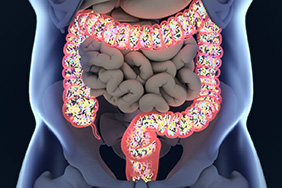
Immune system keeps the intestinal flora in balance
Trillions of benign bacteria live in the intestine. They are kept in a continuous balance by the immune system, which thereby makes them harmless to humans. Prof. Andrew Macpherson, along with colleagues in the Department for BioMedical Research (DBMR) at the University of Bern and Inselspital, Bern University Hospital, and German Cancer Research Center have been able to show how certain natural antibodies keep these bacteria in check. The findings could make an important contribution to the development of superior vaccines.
2020/11/18

Bernese Researchers on Highly Cited Researchers 2020 List
Professors Matthias Erb and Andrew Macpherson, along with several other University of Bern researchers, are among the most citied scientists in the world for their respective work on the biology of plant chemistry and immunology. The annual list of `Highly Cited Researchers` includes researchers whose work ranks in the top 1% of cited scientific publications in their respective fields.
2020/11/02

Successful network research is extended
`One Health`, alongside the other two Interfaculty Research Cooperations (IRC) innovative network projects at the University of Bern - `Sleep` and `religious conflicts`, which started in 2018, have been deemed to be very successful by the Executive Board of the University and will therefore be extended for two years. "Complex, current problem areas can only be tackled in an interdisciplinary manner," said Daniel Candinas, Vice Rector for Research at the University of Bern.
2020/09/04

ERC Starting Grant `PRENEMA -interactions between plants and the natural enemies of pests`
Christelle Robert has been awarded a prestigious ERC grant for her PRENEMA (Plant Response to Entomopathogenic NEMAtodes) project, which aims to understand interactions between plants, herbivores and herbivores natural enemies, so-called tritrophic interactions. These are important determinants of ecological processes and crop yields. Interestingly, recent work shows that plants can perceive and respond to the presence predators. PRENEMA combines an interdisciplinary approach with a new exometabolome phenotyping method to explore the mechanisms and specificity of this phenomenon.
2020/08/05

Gut microbes shape our antibodies before we are infected by pathogens
Colonization with intestinal microbes is known to shape many body systems, especially the white blood cells that produce antibodies. Because the microbiota is so complex, containing hundreds of different bacterial species, it is not known how the presence of microbes in the intestine shaped the antibodies that are present even before we are challenged by an infection. Dr. Stephanie Ganal-Vonarburg and Prof. Andrew Macpherson, along with other researchers at the Department for BioMedical Research (DBMR) of the University of Bern and the Inselspital, University Hospital Bern, have now shown how these beneficial microbes reprogram the repertoire of white blood B cells that produce antibodies and how this helps counter infections.
2020/05/25
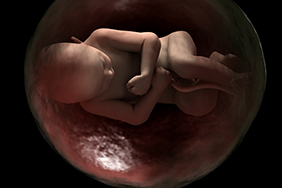
Even natural products can be harmful for the unborn child
Dr. Stephanie Ganal-Vonarburg and Prof. Andrew Machperson from the BioMedical Research (DBMR) Dept. at the University of Bern and Inselspital, University Hospital Bern have established that plant products ingested by pregnant women through their diet are broken down by the intestinal microbiota into chemical substances, some of which can cross the placental barrier and reach the fetus. These foreign substances can harm the unborn child, even if they are of "natural origin". The researchers therefore warn against underestimating the effects of such substances.
2020/04/14
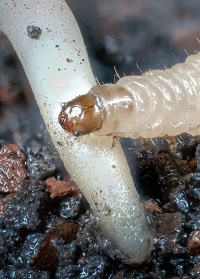
A new approach to improve biological control agents of agricultural pests
In a new Uni Bern study, including One Health Professors` Matthias Erb and Siegfried Hapfelmeier, an experimental approach has been developed that may be used to improve a wide range of organisms that rely on microbial symbionts to control insect pests. This approach opens up a new avenue for the improvement of biological control strategies towards a more sustainable, pesticide-free agriculture. The scientists also identified the genetic mechanism that allows selected bacteria to resist benzoxazinoids, along with Prof. Dr. Helge Bode, Goethe University Frankfurt.
2020/02/05

Gut bacteria help control healthy muscle contraction in the colon
Prof. Andrew Macpherson and colleagues from University Hospital Bern and reaearchers from the Francis Crick Institute have discovered that micro-organisms in the gut support healthy digestion by helping nerve cells within the intestine to regulate the contraction and relaxation of the muscle wall of the colon. This work provides a foundation to unravel why patients that are colonised with different groups of microbes are susceptible to intestinal problems after surgical operations or in conditions such as irritable bowel syndrome.
2019/11/15

How nematodes outsmart the defenses of pests
Prof. Matthias Erb and Dr. Christelle Robert and researchers at the University of Bern explored how the western corn rootworm, one of the world's most damaging maize pests, can use plant defense compounds to defend itself against its own natural enemies, so-called entomopathogenic nematodes. However, the research showed that nematodes can become immune against these compounds in turn, which enhances their ability to fight the western corn rootworm. This mechanism may contribute to improving biological pest control.
2019/01/21

Discovery of bacterial signature of intestinal disease
Prof. Andrew Macpherson and researchers from the Department of Biomedical Research of the University of Bern and the University Clinic of Visceral Surgery and Medicine of the Inselspital Bern, Switzerland, have discovered that changes in the composition of the intestinal bacteria in patients with chronic inflammatory bowel disease affect the severity of the disease and the success of therapy. The advance provides an important basis to improve treatment of these diseases.
2017/11/28
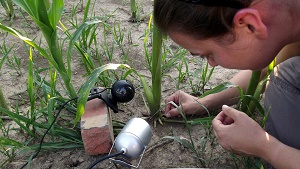
How an herbivore hijacks a nutrient uptake strategy of its host plant
A new study by Dr. Christelle Robert Prof. and Matthias Erb from the Institute of Plant Sciences of the University of Bern and the Max Planck Institute for Chemical Ecology shows how the Western corn rootworm puts the maize plants’ defense strategies out of action. The results explain why biological control of the crop pest has not been efficient.
2018/11/07

Award for project on the positive influence of maternal intestinal microbes
Dr. Stephanie Ganal-Vonarburg.is the winner of the Johanna Dürmüller-Bol DBMR Research Award 2018. As a Senior Scientist, she conducts research in the Gastroenterology / Mucosal Immunology Research Laboratory at Bern University Hospital and at the Department for BioMedical Research at the University of Bern. Ganal-Vonarburg is being awarded for her research in the field of commensal microbiota - the microbes in the intestine.
2018/04/27
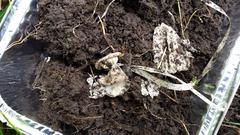
Soils in Swiss nature reserves contain significant quantities of microplastics
Dr. Moritz Bigalke and other scientists at the University of Bern investigated floodplain soils in Swiss nature reserves for microplastics – and made a find. They estimate, that there are around 53 tonnes of microplastics lying in the top five centimetres of the floodplain. Even many of the soils in remote, protected mountainous areas, are contaminated with microplastics.
2018/01/24

University of Bern enhances research across disciplines
Research at the University of Bern is being intensified: Networking projects from different subject areas are being supported with three new Interfaculty Research Collaborations IRC. The projects deal with the health of environment, animals and humans, with religious conflicts and with sleep.
2017/09/14

The University of Bern on the move
Research at the University of Bern is being intensified: Innovative joint projects from different subject areas are being supported with the new Interfaculty Research Cooperations IRC. In teaching, the study of pharmacy is being expanded to a full-time course. The number of students is stabilising at a high level: Around 17,550 students will be newly enrolled in Bern.
